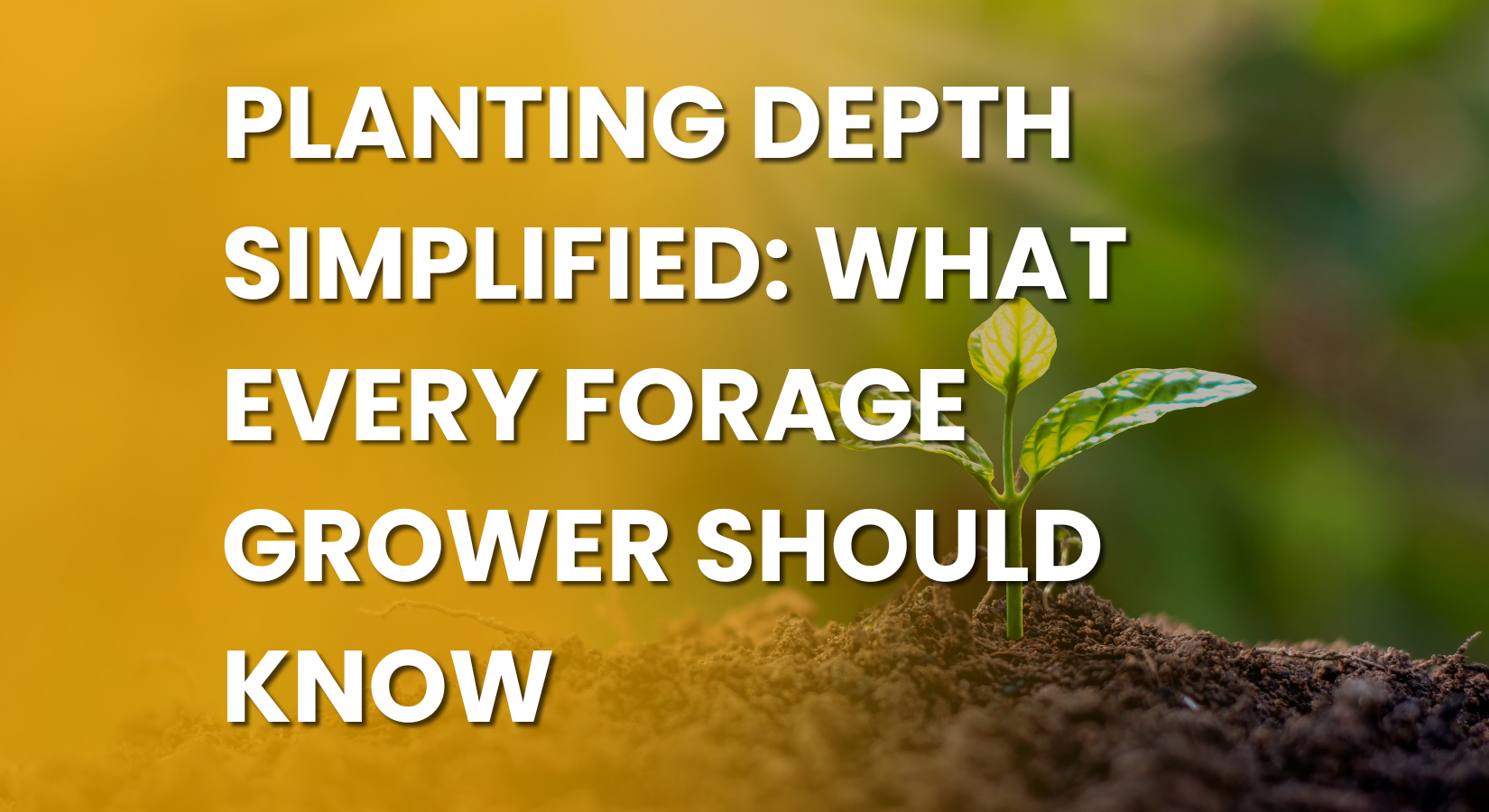One of the most common and crucial questions during planting season is: How deep should I plant my seed? Whether you’re sowing pasture grasses, forage crops, or small grains, planting depth can make or break your emergence success.
Luckily, there’s a simple and effective guideline that applies to most crops—and it’s easier to remember than you might think.
The “First Joint Rule” for Planting Depth
For most forage and cover crops, a reliable rule of thumb is to plant your seed about one inch deep, or roughly to the first joint on your index finger. This planting depth gives seeds access to both stable soil moisture and warmth, promoting strong, even germination.
This depth works well across a wide range of climates and conditions—particularly in temperate latitudes, where deep planting is rarely necessary.
When to Adjust Your Planting Depth
While one inch is a great baseline, there are two key situations where you might adjust slightly:
Go Shallower (Less Than 1 Inch) If:
-
You expect rain in the forecast and don’t want to bury the seed too deep.
-
The topsoil already has sufficient moisture, and there's no need to chase it.
-
You’re planting small-seeded crops that prefer shallower placement.
Go Slightly Deeper If:
-
The soil is dry and crusty on top, and moisture is lower down.
-
You’re dealing with larger seeds or high wind conditions that could displace surface-level seed.
Tip: Always check your soil moisture level before planting. There’s no need to plant deeper “just because”—let the soil guide your decision.
Why Planting Depth Matters
Planting too shallow can lead to:
-
Poor root establishment
-
Seed drying out before germination
-
Susceptibility to bird and insect feeding
Planting too deep can cause:
-
Delayed emergence
-
Weak seedlings
-
Uneven stand density
Getting it “just right” ensures a uniform stand, healthier plants, and better yields—and the inch-deep guideline is a great place to start.
Get the Right Tools for Planting Success
Whether you're drilling, broadcasting, or interseeding, make sure you have the tools and parts to keep your equipment in top shape. At Agzaga.com, you’ll find:
Agzaga is your trusted hub for affordable, fast-shipping ag supplies—ideal for forage growers and hay producers across the country.
Final Thoughts
So—how deep do you plant? For most forage crops, about one inch is the sweet spot. Adjust slightly based on moisture and seed type, and you’re on your way to a strong, healthy stand.
For more expert planting tips and forage crop management, head over to forageguy.com.
